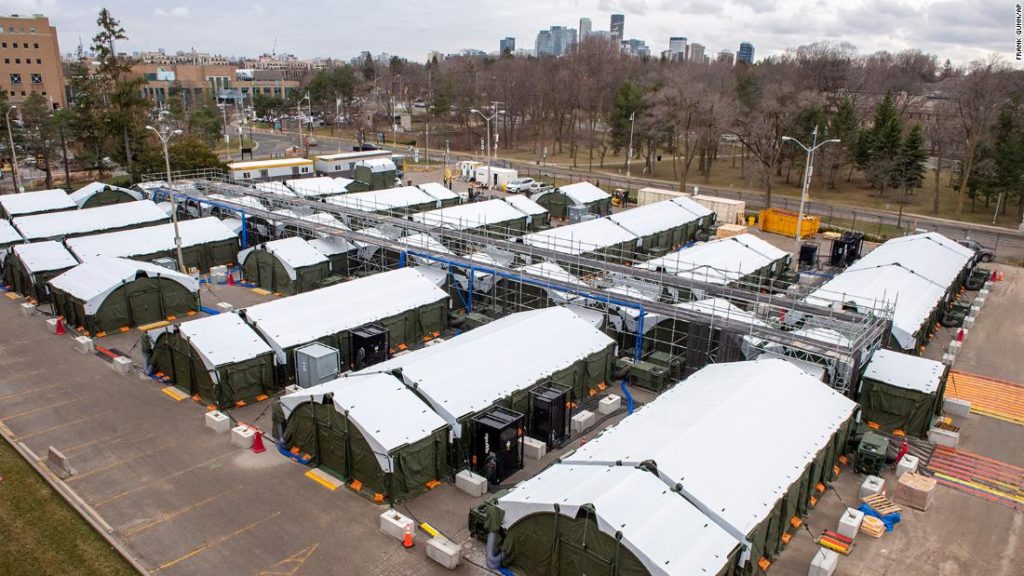The government approved Ontario’s request for medical and other support as ICU admissions hit new highs Monday.
Canada said it would deploy federal health human resources, provide support from the Canadian Armed Forces (CAF), and pay for the redeployment of the Canadian Red Cross to support and relieve staff in medical care facilities, a statement released late Monday said.
“The CAF is preparing to deploy up to three multi-purpose medical assistance teams (MMATs), which are scalable healthcare provider teams primarily composed of Nursing Officers and Medical Technicians as well as additional CAF members for general duty support as applicable,” the statement said. “The MMATs will be rotated in and out of the province rather than deployed simultaneously to ensure that CAF support is sustainable.”
Ontario is already using surge capacity in dozens of hospitals, including a few field hospitals that are admitting patients with Covid-19 who do not need intensive treatment or those who have recovered enough to be transferred into the field facilities.
Ontario public health officials said the province’s positivity rate hit 10.9% in the last 24 hours, a pandemic high.
The province said it also lacks vaccine supply, which mirrors the situation throughout most of Canada, as the country’s vaccine rollout is set to ramp up in May.
However, more doses will not be received or distributed in time to avoid what are already record hospitalizations in Ontario and British Columbia, with a significant increase in admissions in Alberta in the last two weeks.
“We are in somewhat of a vaccine valley,” said John Tory, Toronto’s mayor during a press briefing Monday, adding, “In short, we have significant vaccine capacity which will not be able to be fully utilized because available supply does not allow for it.”
A moment of silence was held in Ontario’s legislature in Toronto and in Canada’s parliament in Ottawa on Monday for a 13-year-old Ontario girl who died at home, one of the youngest victims of Covid-19.
“The variants of concern, and the ones we’re dealing with now, do have a predilection, more and more for the younger age groups. And what I was hoping not to happen, did happen, and I’m concerned that it could happen some more in some cases, said Dr. David Williams, the chief medical officer for Ontario. “We have to be careful; families have to be careful.”
You may also like
-
Afghanistan: Civilian casualties hit record high amid US withdrawal, UN says
-
How Taiwan is trying to defend against a cyber ‘World War III’
-
Pandemic travel news this week: Quarantine escapes and airplane disguises
-
Why would anyone trust Brexit Britain again?
-
Black fungus: A second crisis is killing survivors of India’s worst Covid wave

